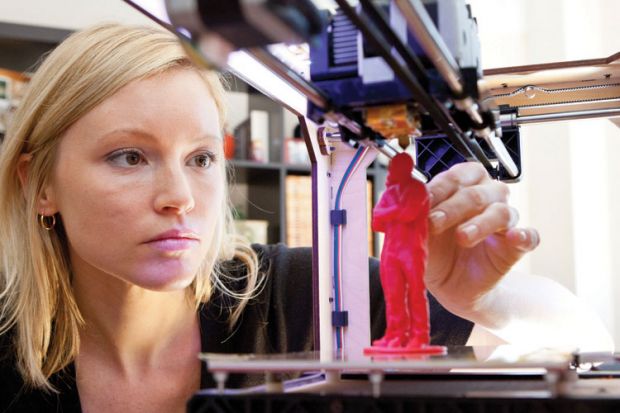Source: Getty
No identikit identities: would-be academics are a minority of PhD students
Universities must become more aware of the different identities of doctoral scientists, rather than viewing them all as “apprentice academics”, a study suggests.
Research involving 165 PhD students at Imperial College London over a two-year period found that there are, in fact, four distinct identities among doctoral candidates: the scientific purist, the social idealist, the pragmatist and the third-order capitalist.
Just 15 per cent of PhD candidates surveyed remained intent on becoming an academic over the two-year study, according to the report by Sally Hancock, research associate at the University of York’s department of education, titled Science in Action: Doctoral Scientists and Identity Construction.
These candidates fell into the traditional model of “PhD student-as-aspiring academic” and were motivated strongly by a desire to further basic knowledge, rather than engaging in the wider knowledge economy, the study says.
But these “scientific purists” were outnumbered by the 25 per cent of PhD candidates who clearly saw their PhD as a preparation for working in industry.
Most of these doctoral students had a “pragmatist” view of their career options. Some had given up on pursuing an academic career because their chances of gaining a decent job were slim, they did not have the passion for it or saw better job prospects in industry.
Others were ultra-pragmatic and had little interest in academic research in itself, Dr Hancock reported. These “third-order capitalists” had undertaken PhDs primarily for economic reasons, viewing a doctorate as an opportunity to gain a promotion, apply knowledge to a specific problem within their field of work or start a career as a scientist-entrepreneur.
Another 10 per cent were “social idealists” who were keen to undertake a research career, but not necessarily within a university setting. Their focus was on producing “socially useful research”, possibly through medical charities, conservation groups or governmental organisations.
In addition, half of all those surveyed changed their minds over their career intentions, moving between the four various identities throughout their studies. This typically occurred after their first year of study when they began to consider alternative employment options to their original ambition of becoming an academic researcher.
The distinct and shifting world-views of doctoral students identified by the study shows that the traditional view of the PhD is increasingly obsolete, said Dr Hancock.
“The academic apprenticeship view of the doctorate, where one does a PhD to become an academic, continues to yield a great deal of influence, especially over supervisors for whom this experience is true,” said Dr Hancock, who presented her report at the Society for Research into Higher Education’s Research Conference, which took place in Newport, South Wales, from 10 to 12 December.
“But this model clearly contrasts with the data in my study and is at odds with the statistics on doctoral career destinations [which show that] most doctoral students do not obtain an academic position,” she added.





